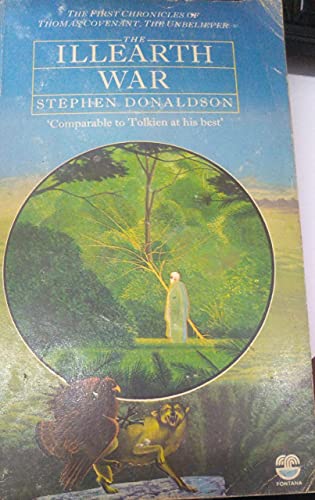The Grapes of Wrath – Summary
The Grapes of Wrath tells the story of the Joad family, Oklahoma tenant farmers driven from their home by drought, economic hardship, and changes in the agriculture industry during the Great Depression. In search of a better life, they set out for California along with thousands of other “Okies” seeking jobs, land, dignity and a future.
The novel begins with Tom Joad’s release from prison, where he served four years for manslaughter. He returns to his family’s farm to find it deserted, as drought and industrialisation have forced tenant farmers off their land. Tom reunites with his family at his Uncle John’s home, where they are preparing to journey to California, lured by handbills promising plentiful work.
Joined by Jim Casy, a former preacher, the Joads embark on the arduous journey west on Route 66. Along the way, they face numerous hardships, including the death of Grampa Joad and the departure of Noah, Tom’s brother. Upon reaching California, the family’s hopes are quickly dashed as they encounter hostility, exploitation and a scarcity of work.
The Joads move from one migrant camp to another, struggling to find work and maintain their dignity. They face discrimination, low wages and inhumane living conditions. The family begins to disintegrate under the pressure: Tom’s father retreats into silence, Rose of Sharon’s husband abandons her, and Tom is forced to go into hiding after a violent encounter with authorities.
Despite these challenges, the Joad family, particularly Ma Joad, fights to stay together and maintain their humanity. The novel culminates in a powerful scene where Rose of Sharon, whose baby is stillborn, offers her breast milk to a starving man, symbolising hope and the triumph of human kindness in the face of despair.
Key Themes:
- Human resilience and dignity in the face of adversity
- The effects of economic and environmental disaster on rural communities
- The exploitation of migrant workers and the struggle for workers’ rights
- The strength of family bonds and community solidarity
- The conflict between self-interest and collective welfare
- The transformative power of hardship and injustice in shaping social consciousness
Character Details
Tom Joad
Tom Joad is the novel’s protagonist, a young man recently released from prison for manslaughter. Initially focused on his own survival, Tom undergoes a profound transformation throughout the story. He is intelligent, quick-tempered and fiercely loyal to his family. As he witnesses the injustices faced by migrant workers, Tom evolves from a self-centred individual to a committed social activist, inspired by Jim Casy’s teachings. His journey represents the awakening of social consciousness and the power of individuals to effect change.
Ma Joad
Ma Joad is the emotional cornerstone of the family, embodying strength, resilience and unwavering determination. She holds the family together through countless hardships, often making difficult decisions to ensure their survival. Ma’s character challenges traditional gender roles, as she increasingly takes on a leadership position within the family. Her compassion extends beyond her immediate family to the larger community of migrants, exemplifying the novel’s themes of solidarity and shared humanity.
Jim Casy
Jim Casy is a former preacher who joins the Joad family on their journey. He serves as the moral and philosophical centre of the novel, often articulating Steinbeck’s social and political views. Casy has abandoned traditional religion in favour of a belief in the holiness of human experience and the power of collective action. His ideas profoundly influence Tom Joad and foreshadow the growing labour movement. Casy’s martyrdom becomes a catalyst for Tom’s transformation and commitment to social justice.
Rose of Sharon
Rose of Sharon is the Joads’ eldest daughter, who begins the novel young, pregnant and naive. Throughout the story, she matures significantly, facing the harsh realities of life as a migrant and the personal tragedy of losing her baby. In the novel’s iconic final scene, Rose of Sharon demonstrates extraordinary compassion by nursing a starving stranger with her breast milk, symbolising hope, renewal and the power of human kindness in the face of despair.
Pa Joad
Pa Joad is the family patriarch who struggles to maintain his role as the head of the household in the face of overwhelming adversity. Once a respected farmer, he finds himself increasingly powerless in the new economic landscape. Pa’s gradual withdrawal and silence throughout the journey reflect the erosion of traditional male authority and the psychological toll of displacement and poverty on individuals.
Reader Fit
The Grapes of Wrath is an essential read for those interested in American literature, social justice, and the human condition.
It appeals to readers who appreciate:
- Powerful, character-driven narratives
- Explorations of social and economic issues
- Historical fiction set during the Great Depression
- Themes of resilience, family and human dignity
- Lyrical prose and vivid descriptions of the American landscape
The novel’s themes remain relevant today, making it valuable for readers seeking to understand issues of economic inequality, migration and the impact of environmental and technological change on communities.
CEFR Classification and Learning Suitability
Estimated CEFR Level: C1 (Advanced)
The Grapes of Wrath is a powerful and richly descriptive novel that requires advanced English skills to fully appreciate its language and themes.
- Vocabulary: The novel contains a broad and varied vocabulary, including regional dialect, idiomatic expressions, and descriptive language that evoke the setting and social context.
- Grammar and Structure: Sentences range from simple to complex, with some extended descriptive passages and shifts in narrative perspective.
- Themes: The book explores social injustice, family and survival during the Great Depression, with deep emotional and political undertones.
- Dialogue and Style: Dialogue reflects regional speech patterns and is often informal, while the prose is vivid and immersive but can be dense.
Recommendation:
This book is suitable for advanced learners who are comfortable with literary fiction that combines rich language and complex themes.
Quick Facts
- Genre: Historical fiction
- Publication Year: 1939
- Reading Time Estimate: 10-12 hours (based on average reading speed)
- Notable Awards: Pulitzer Prize for Fiction (1940), Nobel Prize in Literature (awarded to Steinbeck in 1962, partly for this work)
Related Books
- “East of Eden” by John Steinbeck
- “Of Mice and Men” by John Steinbeck
- “To Kill a Mockingbird” by Harper Lee


